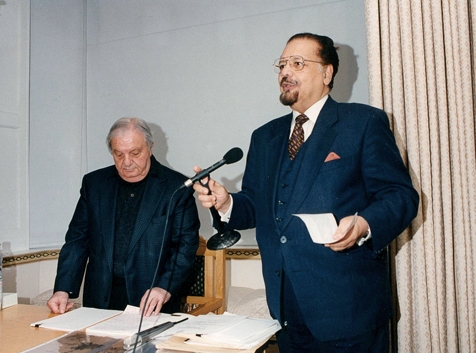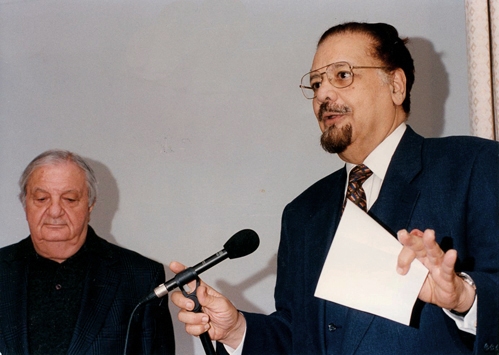On 3rd of April 1996, Professor Yusuf Ibish gave a lecture on the dual function of the hiraf in integrating the individual artisan in:
1. A socio-economic system under the Shariah
2. A spiritual brotherhood of the Sufi orders as the “Sacred Way” leading back to God.
The symbolism of weaving, with the warf and weft threads signifying the two modes of integration, (horizontal/wordly and vertical/spiritual) is particularly relevant. The initiated artisan had to prove his worth not only by the excellence of his craftsmanship, but also by the quality of his faith: ‘amal (work) and iman (faith) were tightly braided together, for the artisan was not just earning a living in this world, he was also and above all refining his soul for the next.
Thus society was knit into a strong fabric to counterbalance the military might of the Ottoman Empire. The individual owed his loyalty primarily to Islam itself, and then to his own socio-economic group, or hirfah, and its ethic. Society gradually coalesced and forced the State to co-operate with the settled agricultural and industrial trade corporations. Obedience to the state was through respect for law and order, payment of taxes and participation in defence.

This system was gradually destroyed by complicated internal and external developments in the 19th and 20th centuries. Professor Ibish touched on some of the most important factors that led to the dissolution of traditional society. A dissolution which resulted in the loss of the personal link between the individual and the community and, therefore, the loss of social and religious integration. Islam no longer has a concrete social organisation. This social void is complicated by the rise of the modern state with its disproportionately large coercive powers and the decay of any counterbalancing institutions. This is at the heart of the severe crises in the Muslim World today, calling for reconstruction of the forms of social cohesion on Islamic principles. The confusion and violence we witness in our societies are but indices of the continuing vitality of Islam.

The lecture clearly struck a chord with the audience, in particular with the Chairman, who commented on the close resemblance between Professor Ibish’s descriptions of 19th century Damascus and life in Makkah in the early part of this century.
This lecture took place at Al-Furqan Islamic Heritage Foundation's headquarters, Eagle House in Wimbledon, London.

